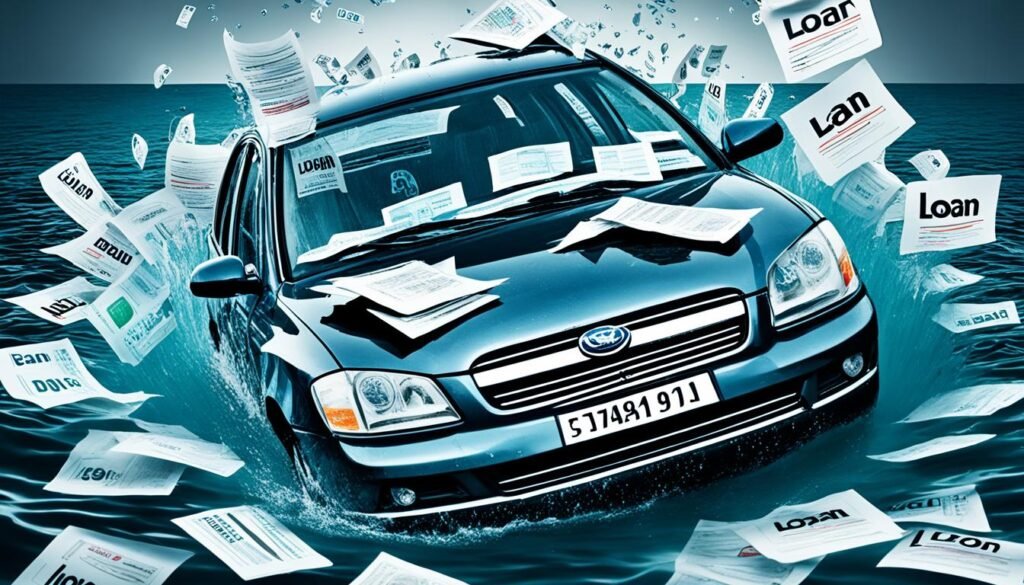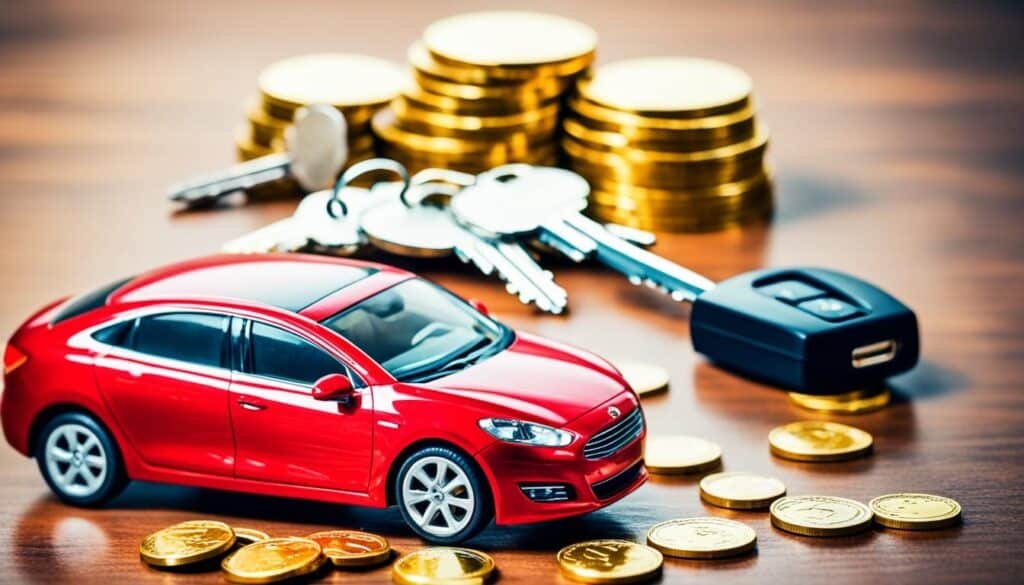Personal Loan For Car When it comes to buying a car, traditional auto loans may not be the only financing option available to you. Considering a personal loan for your car purchase can provide an alternative solution with its own set of advantages and disadvantages. In this guide, we will explore the pros and cons of using a personal loan for a car purchase and provide tips on how to secure the best rates.
Using a personal loan for a car purchase can offer flexibility and convenience compared to an auto loan. It allows you to borrow the necessary funds and use them for any purpose, including buying a vehicle. This means that you have more control over your financing and can explore different car buying options.
However, it is important to weigh the pros and cons before deciding which option is right for you. While a personal loan can provide more freedom, it may come with higher interest rates and stricter approval requirements. It’s crucial to consider your individual circumstances and financial goals when making a decision.
To secure the best rates for a personal loan, it’s advisable to shop around and compare offers from different lenders. Take advantage of online loan calculators to estimate monthly payments and total costs. Additionally, consider your credit score and history, as they play a significant role in determining the loan eligibility and interest rates you may qualify for.
In the sections that follow, we will delve deeper into the key differences between personal loans and auto loans, discuss situations where using a personal loan for a car purchase is advantageous, highlight the benefits and disadvantages of this financing option, and provide tips for choosing the right option for your needs.
Key Takeaways: Personal Loan For Car
- A personal loan can be an alternative to traditional auto loans when purchasing a car.
- Using a personal loan offers flexibility and control over your financing.
- Consider the pros and cons of a personal loan, such as higher interest rates and stricter approval requirements.
- Shop around and compare offers from different lenders to secure the best rates for a personal loan for car purchase.
- Your credit score and credit history play a significant role in determining loan eligibility and interest rates.
Personal Loan vs. Auto Loan: Key Differences
When it comes to financing a car purchase, two common options are personal loans and auto loans. While both are installment loans, there are key differences to consider. Let’s explore the distinctions between personal loans and auto loans to help you make an informed decision.
Secured vs. Unsecured:
Auto loans are secured loans, meaning they require collateral. In the case of auto loans, the car itself serves as the collateral. This provides a layer of security for the lender, as they can repossess the vehicle if the borrower defaults on payments. On the other hand, personal loans are typically unsecured, meaning they don’t require collateral. This makes personal loans a viable option for various financial needs, including car purchases.
Repayment Terms and Interest Rates:
The repayment terms and interest rates for personal loans and auto loans can vary. Auto loans often come with fixed repayment terms, typically ranging from two to seven years, depending on the lender and the loan amount. Personal loans, on the other hand, may offer more flexibility in terms of repayment periods. As for interest rates, auto loans generally have lower rates compared to personal loans due to the collateral involved.
Flexibility of Use:
While auto loans are specifically designed for purchasing vehicles, personal loans can be used for a variety of financial needs, including buying a car. This flexibility allows borrowers to consider personal loans as an alternative option for car financing, especially if they want to consolidate their debts or address other expenses simultaneously.
Did You Know?
Personal loans can be a convenient choice if you need to finance your car purchase while also handling other financial obligations.
Here’s a comparative table summarizing the key differences between personal loans and auto loans:
| Feature | Personal Loan | Auto Loan |
|---|---|---|
| Collateral | Unsecured | Secured (car serves as collateral) |
| Repayment Terms | Flexible | Fixed |
| Interest Rates | Typically higher | Lower due to collateral |
| Usage | Flexible (can be used for various financial needs) | Specifically designed for purchasing vehicles |
Understanding the differences between personal loans and auto loans is crucial in determining the ideal financing option for your car purchase. Consider factors such as collateral requirements, repayment terms, and interest rates to make an informed decision that aligns with your financial goals and preferences.
When to Use a Personal Loan for a Car Purchase
There are specific situations when it might make sense to use a personal loan for a car purchase. If you can’t secure conventional financing for the vehicle, either due to its age or mileage, a personal loan can be a viable option. Similarly, if your credit is not good enough to qualify for an auto loan, a personal loan may be a better choice. In some cases, a personal loan may offer a lower interest rate compared to a subprime auto loan.
Benefits of Using a Personal Loan for a Used Car

Opting for a personal loan when buying a used car offers several benefits. One key advantage is that a personal loan is an unsecured loan, which means you won’t have to worry about repossession if you miss payments. This can provide peace of mind and financial flexibility throughout your car ownership journey.
Another benefit of using a personal loan is that the funds are available in advance. This means that once your loan is approved, you’ll have the necessary funds at your disposal to make a purchase from a private seller. This opens up more options for finding the right car for your needs and preferences.
Unlike auto loans that often require a down payment, a personal loan doesn’t necessitate upfront cash. This can be particularly advantageous if you’re looking to purchase a used car without having to come up with a significant down payment. With a personal loan, you can secure the funds you need to make the purchase without any extra financial burden.
Overall, when considering a personal loan for a used car, the benefits of an unsecured loan, the availability of funds in advance, and the flexibility of not having to provide a down payment make it a compelling financing option.
| Benefits of Using a Personal Loan for a Used Car |
|---|
| Unsecured Loan |
| Avoid Repossession |
| Funds Available in Advance |
| No Down Payment |
Disadvantages of Using a Personal Loan for a Car Purchase

While there are advantages to using a personal loan for a car purchase, it’s important to be aware of the potential drawbacks. Personal loans typically come with higher interest rates compared to auto loans, making them costlier in the long run. Additionally, personal loans may have stricter approval requirements, meaning you might face more difficulty in qualifying for a loan.
Another downside of using a personal loan for a car purchase is the shorter repayment timeline. Unlike auto loans that generally offer longer repayment terms, personal loans often come with shorter repayment periods, which can result in higher monthly payments. Additionally, personal loans may have lower loan amounts available compared to auto loans that are specifically designed for vehicle purchases.
“Personal loans generally come with higher interest rates and shorter repayment timelines compared to auto loans.”
When considering a personal loan for a car purchase, it’s crucial to carefully evaluate the implications of these disadvantages. Higher interest rates mean that you will end up paying more in interest over the life of the loan. Stricter approval requirements may make it more challenging to secure the necessary financing. Moreover, the lower loan amounts available for personal loans may limit your options when it comes to choosing a vehicle.
Before making a decision, it’s essential to compare the terms and conditions of personal loans and auto loans, taking into account your financial situation and preferences. Evaluating the advantages and disadvantages will help you determine whether a personal loan is the right choice for your car purchase, or if an auto loan may be a more suitable option.
| Disadvantages | Personal Loan | Auto Loan |
|---|---|---|
| Higher Interest Rates | Typically higher compared to auto loans | Generally lower compared to personal loans |
| Stricter Approval Requirements | May have stricter requirements | Easier to qualify for with standard eligibility criteria |
| Shorter Repayment Timeline | Usually come with shorter repayment periods | Often offer longer repayment terms |
| Lower Loan Amounts | May provide lower loan amounts | Available options usually offer higher loan amounts |
Determining If a Personal Loan is the Right Choice

When deciding whether a personal loan is the right financing option for your car purchase, several factors should be taken into consideration. These factors include age and mileage restrictions, credit score, and the availability of low personal loan rates. Additionally, if you’re planning to finance a project car or a vehicle that doesn’t meet the criteria of traditional auto loans, a personal loan might be the only viable option for you.
Auto loan lenders often impose age and mileage restrictions on the vehicles eligible for financing. If the car you wish to purchase falls outside these restrictions, securing an auto loan may not be possible. In such cases, a personal loan can provide the necessary funds to finance your car purchase.
Another important factor to consider is your credit score. If you have poor credit or a limited credit history, obtaining an auto loan may be challenging. However, personal loans are more flexible in terms of credit requirements, and some lenders offer low personal loan rates even for individuals with less-than-perfect credit.
Financing a Project Car
Are you planning to embark on a project car restoration? Personal loans can be an excellent option for financing such projects. Project cars often require extensive repairs and modifications that may exceed the typical scope of a traditional auto loan. With a personal loan, you can secure the necessary funds to bring your dream car to life.
Additionally, personal loans provide more flexibility when purchasing a vehicle from a private seller. Unlike auto loans, a personal loan doesn’t require a down payment, making it easier for you to negotiate with private sellers and complete the transaction.
“A personal loan can be a great option for financing project cars and vehicles that don’t meet traditional auto loan criteria. It allows borrowers to access funds without worrying about age or mileage restrictions imposed by auto loan lenders.” – Car Finance Expert
Considering these factors can help determine if a personal loan is the right choice for your car purchase. However, it’s crucial to carefully weigh the pros and cons of personal loans compared to auto loans before making a final decision.
Why Auto Loans Are the Preferred Option

Despite the availability of personal loans for car purchases, auto loans remain the preferred option for most buyers. Auto loans offer several advantages that make them a more attractive choice.
Lower Interest Rates
One of the key reasons why auto loans are preferred is because they typically come with lower interest rates. This is primarily due to the collateral involved, which is the car itself. Lenders have the assurance of the car’s value as security, allowing them to offer lower interest rates compared to personal loans.
Longer Repayment Terms
When it comes to repayment, auto loans generally provide longer terms compared to personal loans. This allows borrowers to spread out the payments over a more extended period, making them more manageable and affordable.
Higher Loan Amounts
Auto loans often provide higher loan amounts, which is especially beneficial for purchasing a vehicle. The loan amount can better align with the actual cost of the car, allowing buyers to secure the necessary funds without having to supplement with personal savings.
Collateral
Collateral, in the form of the car being purchased, gives auto loans an added layer of security for lenders. This reduces the risk associated with the loan, which in turn leads to more favorable terms for borrowers, such as lower interest rates and higher loan amounts.
Overall, the combination of lower interest rates, longer repayment terms, higher loan amounts, and the existence of collateral makes auto loans the preferred choice for most buyers when it comes to financing their car purchases.
Tips for Choosing the Right Financing Option

When it comes to financing your car purchase, choosing the right option is crucial. Here are some tips to help you make an informed decision:
- Comparison Shopping: Take the time to shop around and compare offers from different lenders. Look for loan terms, interest rates, and fees that best suit your needs.
- Online Loan Calculator: Utilize online loan calculators to estimate monthly payments and total costs. This will give you a clear understanding of how different loan options will impact your budget.
- Credit Score and Credit History: Your credit score and credit history play a significant role in determining loan eligibility and interest rates. Check your credit score beforehand and work towards improving it if necessary.
- Consider Loan Offers: Don’t settle for the first loan offer you receive. Compare loan offers from various lenders to ensure you’re getting the best deal. Look for favorable terms, low interest rates, and flexible repayment options.
By following these tips, you can make an informed decision and secure the right financing option for your car purchase.
Example Loan Comparison Table:
| Lender | Loan Term | Interest Rate | Monthly Payment |
|---|---|---|---|
| Bank A | 36 months | 3.5% | $450 |
| Bank B | 48 months | 3.8% | $400 |
| Bank C | 60 months | 4.2% | $375 |
Comparison shopping allows you to evaluate different loan offers and choose the one that best fits your financial situation. Use this example loan comparison table as a guide when considering various options.
Pros of financing a car with a personal loan
Secured and unsecured personal loans
What Credit Score Is Needed for a Personal Loan?
How do I get an auto loan to buy a car?
Why you might not want to use a personal loan to buy a car
Conclusion
When considering whether to obtain a personal loan or an auto loan for your car purchase, it’s crucial to assess the factors discussed in this guide. Personal loans offer flexibility and can be suitable for specific circumstances, especially if you can’t obtain conventional auto loan financing or if you have poor credit. However, for most buyers, auto loans generally provide lower interest rates and longer repayment terms, making them the preferred choice.
Before making a final decision, carefully evaluate your needs, creditworthiness, and the available loan options. If you’re buying a used car from a private seller or your credit falls short of auto loan requirements, a personal loan for a car purchase can be a viable alternative. However, if you’re looking for lower interest rates and higher loan amounts, an auto loan is likely the more favorable option.
Ultimately, choosing the right financing option requires careful consideration of your financial situation and goals. Take the time to compare loan offers, utilize online loan calculators, and review your credit score and history. By doing so, you can make an informed decision that aligns with your needs and ensures the best possible financing for your car purchase.
FAQs
Q: What is a personal loan for car purchase?
A: A personal loan for car purchase is a type of loan that allows you to borrow money specifically to buy a car, typically without using the vehicle you’re purchasing as collateral.
Q: When does it make sense to use a personal loan to buy a car?
A: It makes sense to use a personal loan to buy a car when you want to finance a car purchase without tapping into your savings or using a high-interest credit card.
Q: How does one qualify for a personal loan to buy a car?
A: To qualify for a personal loan to buy a car, you typically need a good credit score, stable income, and a low debt-to-income ratio.
Q: What are the differences between an auto loan and a personal loan for buying a car?
A: An auto loan is specifically designed for purchasing a vehicle and often uses the car as collateral, while a personal loan for buying a car is typically unsecured and can be used for various purposes.
Q: Are personal loan interest rates lower than auto loan rates?
A: Generally, auto loan rates tend to be lower than personal loan interest rates, as the vehicle serves as collateral for the lender in case of default.
Q: What happens if you default on a personal loan for a car purchase?
A: If you default on a personal loan for a car purchase, the lender may repossess your car to recoup their losses.
Q: Should I shop around for the best personal loan interest rates?
A: Yes, it’s recommended to shop around for the best personal loan interest rates to ensure you get the most favorable terms and save money over the life of the loan.
